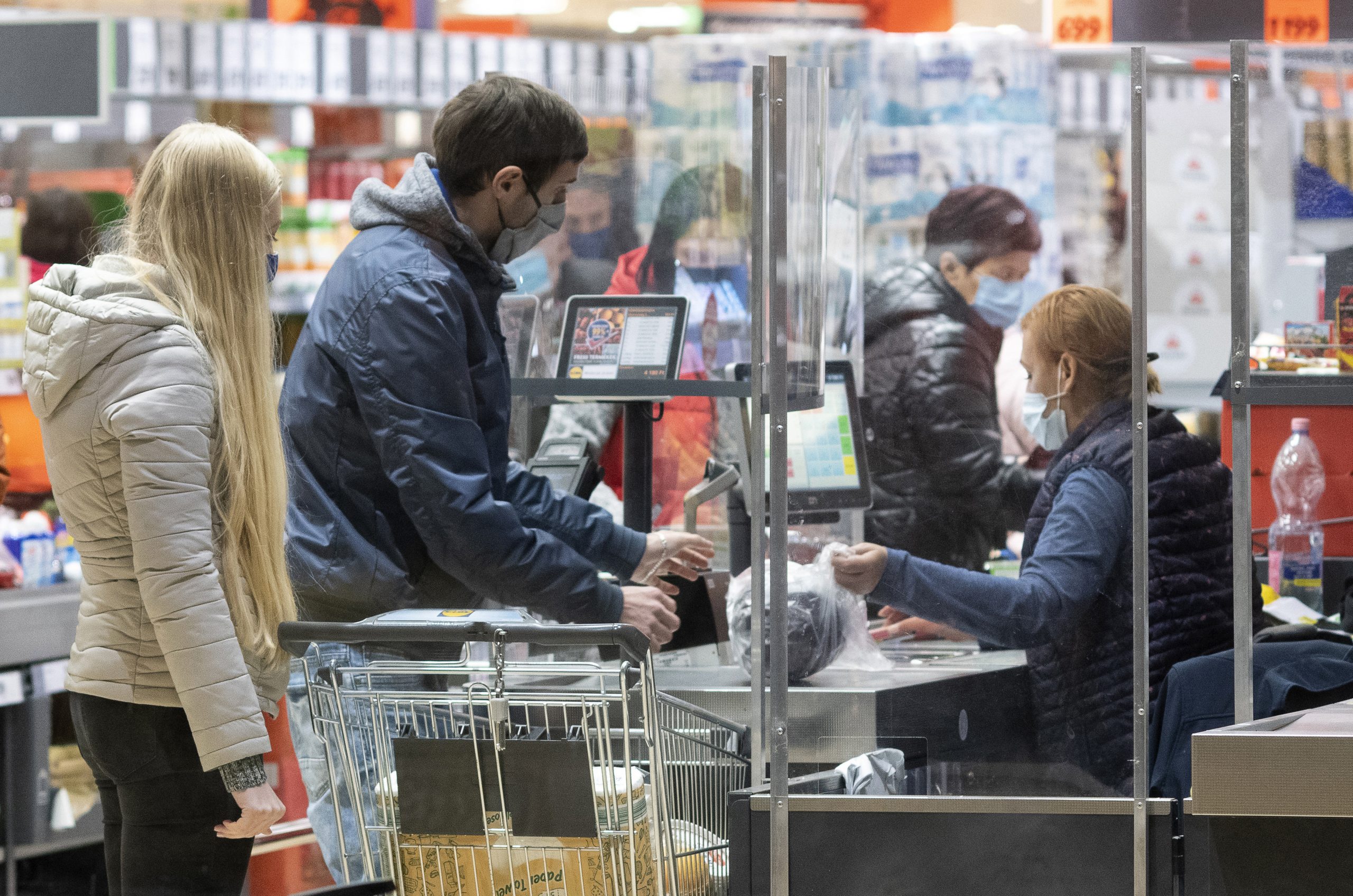
The government has decided to put a cap on the prices of six food products effective February 1, Orbán announced on Wednesday evening.Continue reading

The Orbán government has decided to cap the price of some key food products, including milk, flour, cooking oils, and chicken breast as an attempt to curb persistent and record high price increases. Although the government believes that the measure now being introduced is capable of reducing inflation, some believe that the expected positive impact on the consumer side will not be seen.
The government has decided to put a cap on the prices of six food products effective February 1, Prime Minister Viktor Orbán announced on Wednesday. The price of sugar, wheat flour, sunflower-seed oil, pork leg, chicken breast, and milk with 2.8 percent fat will be frozen at their Oct. 15, 2021 levels due to rising food prices.
Additional details were revealed by Gergely Gulyás during a press conference, where the head of the PM’s Office said that the government had decided to implement the measure for three months, but the duration could be further extended. Stores will have to revert to their own prices from October 15th for the selected products, which will be monitored by authorities. In addition to the already announced products, the price of chicken backs will also be maximized at last October’s level. The government justified the freezing of prices to the mid-October level because it believes that food inflation hit Hungary at the end of that month.
It is indisputable that inflation has been surging in Hungary at a record level in recent months, also having a significant impact on the prices of food products which have been rising at an accelerated pace, practically since the beginning of last summer.
Based on its own monthly consumer price survey, news site Pénzcentrum found that the last record price rise happened in November 2021, when food product prices soared by 17 percent. This was followed by another annual price peak in January this year. Prices in the included hypermarkets rose by an average of 17.8 percent compared to January 2021.
In addition, the indicator measuring the monthly price growth also shows an increasing price hike: the average price of the portal’s food basket increased by 3.5 percent compared to December 2021.
Furthermore, prior to the government’s announcement, Hungary’s central bank had projected the rate of growth in food prices to almost double in 2022.
Among the products that were price-capped on Wednesday, official consumption data is only available for sugar, cooking oil, and milk. There is none for chicken breast and pork leg, only for general poultry and pork consumption.
According to the official 2021 data of the Central Statistical Office (KSH), the average monthly consumption (based on annual averages) of Hungarians:
According to Pénzcentrum‘s own calculations, if stores were to return now to the average prices of October for the products selected by the government, then the price of
Chicken breast prices, on the other hand, have fallen slightly in January, so retailers should now instead increase their prices by an average of around 3 percent to get back to the same level as last October, according to the site.
Prime Minister Viktor Orbán’s announcement on the price freeze has come as a complete surprise to the commercial sector, writes Portfolio. The analysis of the economic news portal suggests that the measure, which may sound appealing at first, may not bring about a positive outcome for most consumers.
There are still a lot of unclear parts to the government’s decision, but based on the details known so far, it is almost certain that multinational companies, including discount chains, are the least likely to suffer, while Hungarian small and medium-sized enterprises and small shops could be the most negatively affected ones.
Subsequently, the price cap will probably be closer to the price level of the former retailers, while small shops will suffer greater losses due to their generally higher prices.
However, consumers may also be negatively affected by the decision, as shops will compensate for the losses of the six products concerned by increasing the prices of others.
For these reasons, it is not clear why consumers would benefit from the cap while having the prices of other products in their basket rise significantly.
Meanwhile, the government says the recently announced price caps including this one, are capable of reducing inflation by 2 percent. The VAT cut, which was suggested as an alternative solution, was not approved because it would only benefit retailers, the government argues, and would not reach consumers, which is the goal of the current measure.
Featured photo illustration by Attila Balázs/MTI